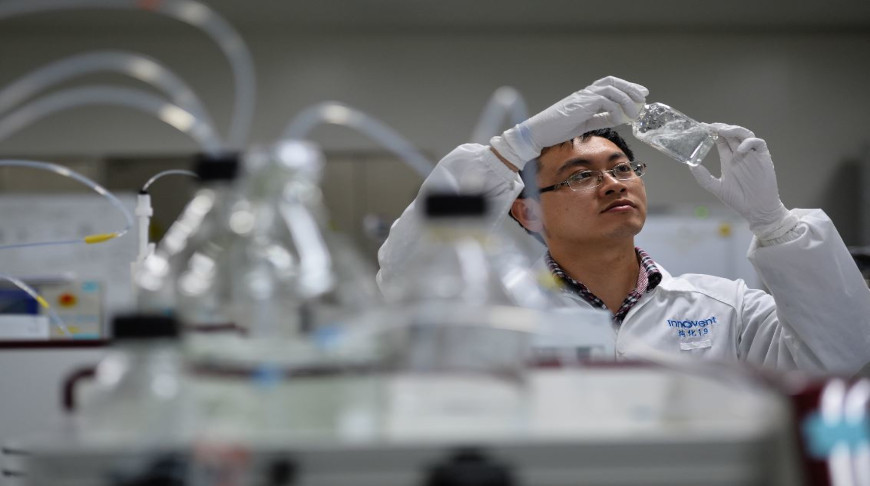
An engineer checks the efficacy of a medicine at a research facility of Innovent Biologics Inc in Suzhou, Jiangsu province
BEIJING, 11 September (BelTA - Xinhua) - China has risen to the
world's second place in terms of new drug development, with domestic
drugs under research accounting for over a fifth of the global total, a
health official said on Thursday.
In recent years, a series of innovative medicines developed by China - including some anti-cancer drugs -- have been approved for market launch, filling gaps in the country's portfolio of homegrown treatments, said Guo Yanhong, deputy head of the National Health Commission.
Guo added that one of the new drugs, Zanubrutinib, has received approval for use in many other countries.
At a press conference on China's healthcare progress from 2021 to 2025, the official also highlighted the country's advances in high-end medical device development.
Breakthroughs include a homegrown photon-counting CT scanner with up to triple the resolution of traditional machines, faster scans, and lower radiation exposure. Domestically developed orthopedic and soft-tissue surgical robots are improving precision and reducing trauma, while ECMO machines, artificial hearts, and proton and heavy-ion therapy systems have also been independently developed and deployed in hospitals.
These innovations are helping more patients "access, afford, and benefit from" cutting-edge, domestically produced medical equipment, Guo said.
In recent years, a series of innovative medicines developed by China - including some anti-cancer drugs -- have been approved for market launch, filling gaps in the country's portfolio of homegrown treatments, said Guo Yanhong, deputy head of the National Health Commission.
Guo added that one of the new drugs, Zanubrutinib, has received approval for use in many other countries.
At a press conference on China's healthcare progress from 2021 to 2025, the official also highlighted the country's advances in high-end medical device development.
Breakthroughs include a homegrown photon-counting CT scanner with up to triple the resolution of traditional machines, faster scans, and lower radiation exposure. Domestically developed orthopedic and soft-tissue surgical robots are improving precision and reducing trauma, while ECMO machines, artificial hearts, and proton and heavy-ion therapy systems have also been independently developed and deployed in hospitals.
These innovations are helping more patients "access, afford, and benefit from" cutting-edge, domestically produced medical equipment, Guo said.













